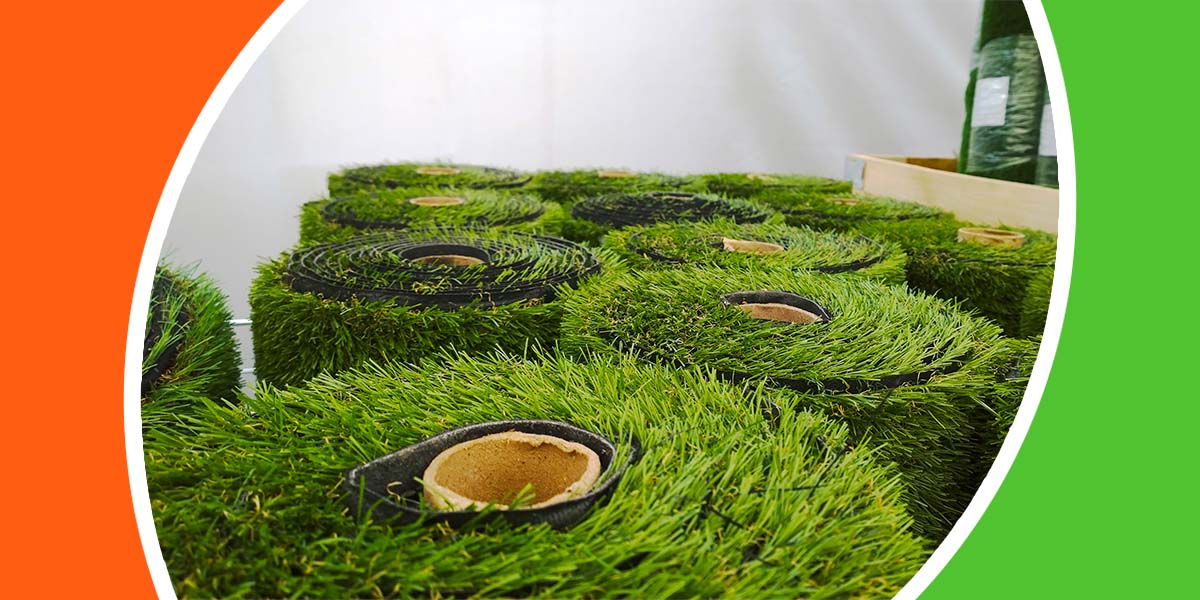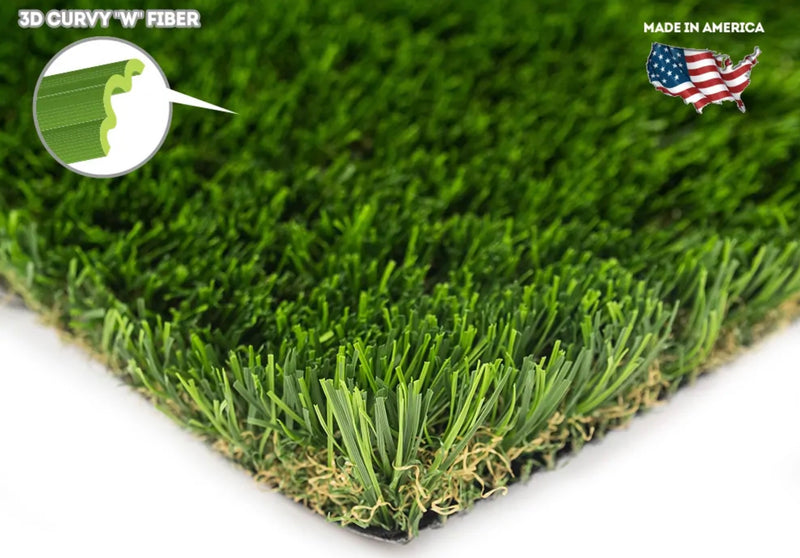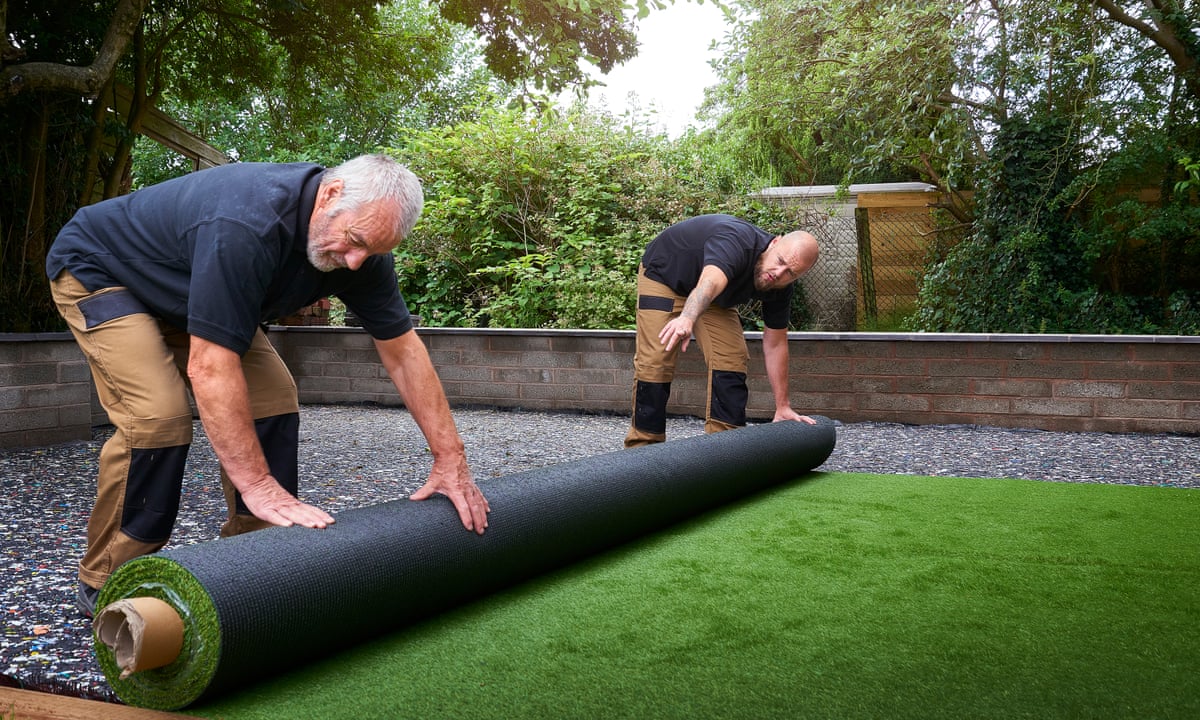Premier Phoenix Turf Companies Providing High-End Synthetic Lawn Solutions
Premier Phoenix Turf Companies Providing High-End Synthetic Lawn Solutions
Blog Article
Explore the Environmental Benefits of Opting for Synthetic Grass Solutions
The fostering of fabricated grass services presents an engaging possibility to deal with pushing environmental challenges. By substantially lowering water usage and decreasing the application of harmful chemicals, these choices not just promote lasting landscaping but additionally safeguard local ecosystems. In addition, the lower carbon impact connected with decreased upkeep activities adds to a more lasting method to land monitoring. The ramifications of these advantages prolong beyond plain conservation initiatives, raising inquiries about their long-lasting impact on environment preservation and total environmental equilibrium. Checking out these measurements discloses a complicated interplay worth taking into consideration.
Water Conservation Perks
Among one of the most substantial advantages of synthetic grass is its capability to save water. Standard lawn yards call for significant watering, specifically in areas susceptible to drought or water constraints. In comparison, artificial turf does not need watering, substantially reducing the overall demand for water resources. This feature is especially valuable in deserts where water deficiency is a pushing problem.
By removing the requirement for regular watering, artificial turf adds to lasting landscape methods and helps minimize the environmental influence of excessive water intake. The conservation of water expands to the reduction of drainage, which can lead to soil disintegration and river pollution.
Furthermore, the installment of synthetic turf enables home owners and towns to allot water resources a lot more successfully, focusing on necessary usages such as drinking water and agriculture. The shift in the direction of synthetic grass not just advertises responsible water usage however additionally aligns with more comprehensive environmental goals focused on protecting all-natural resources.
As areas progressively focus on sustainability, the water conservation advantages of synthetic grass offer an engaging instance for its adoption in commercial and property landscaping projects.
Minimized Chemical Usage
The change to synthetic lawn dramatically lowers the dependence on chemical therapies frequently made use of in all-natural lawn maintenance. Conventional turf management usually includes the application of herbicides, pesticides, and plant foods to promote growth and control pests. These chemicals can pose threats to human wellness, neighborhood wild animals, and the atmosphere, contributing to soil and water contamination.
In contrast, fabricated lawn eliminates the demand for these hazardous compounds. By reducing the release of synthetic compounds into the community, fabricated lawn advertises much healthier dirt and water systems.
Furthermore, the absence of chemical drainage related to fabricated turf installments aids protect local rivers from contamination, sustaining water life and keeping biodiversity. Phoenix turf companies. As areas increasingly prioritize sustainable methods, choosing synthetic grass offers a practical option that aligns with ecological preservation goals. Through this change, homeowner can appreciate lavish eco-friendly rooms without compromising eco-friendly health and wellness, leading the way for a much more lasting future
Reduced Carbon Footprint

Additionally, the installation of synthetic grass can cause substantial water preservation. Natural yards need considerable quantities of water for watering, which not just adds to the carbon footprint linked with water removal and treatment but likewise strains regional water sources. In comparison, synthetic grass requires marginal upkeep, calling for no watering, therefore dramatically decreasing water use and its associated energy costs.
Additionally, the long life of synthetic grass adds to its decreased carbon influence. With a life-span of approximately 15 years or more, the need for frequent substitutes is reduced, causing less waste and lower power usage in production and throwing away typical yard options. Generally, synthetic grass offers a sustainable choice for environmentally conscious landscaping.
Habitat Preservation
Habitat preservation is an important factor to consider in the argument over landscape design selections, especially when comparing synthetic grass to natural grass. All-natural turf lawns typically call for comprehensive upkeep, including making use of pesticides, plant foods, and herbicides, which can negatively impact neighborhood ecosystems. These chemicals can seep into the soil and rivers, hurting indigenous plants and animals and interrupting local environments.
Synthetic grass removes the demand for damaging chemicals, therefore protecting nearby wildlife and preserving the stability of surrounding ecological communities. The setup of artificial lawn can lead to the conversion of former grass locations into even more biodiverse landscapes, such as pollinator yards or indigenous plant areas, which can sustain local wildlife.
Inevitably, the change to synthetic grass not only conserves water and reduces upkeep efforts but additionally cultivates a more harmonious relationship in between human tasks and the natural surroundings, promoting environment conservation at try this website the same time.
Long-Term Sustainability
Long-lasting sustainability is a critical variable in reviewing the benefits of man-made turf over conventional grass lawns. Among the most significant advantages of synthetic grass is its durability; it can last approximately 15-20 years with marginal upkeep, whereas all-natural yard needs regular reseeding and replacement. This longevity reduces the need for consistent sources, such as water, plant foods, and pesticides, which are vital for preserving a healthy turf lawn.
Additionally, synthetic grass adds to a reduction in carbon discharges related to grass treatment equipment. Conventional lawns usually need gas-powered mowers, leaners, and blowers, every one of which contribute to air contamination. Phoenix turf companies. In contrast, synthetic grass gets rid of the demand for such devices, advertising a cleaner atmosphere
Furthermore, the manufacturing of synthetic lawn progressively makes use of recycled materials, boosting its sustainability profile. As makers adopt eco-friendly techniques, the environmental footprint of fabricated grass remains to lessen.

Verdict
The adoption of artificial lawn options presents substantial environmental benefits, including substantial water preservation, minimized reliance on hazardous chemicals, and a reduced carbon impact. Fabricated grass help in preserving all-natural environments by reducing land disruption and promoting long-lasting sustainability through the use of sturdy materials. Jointly, these elements highlight the capacity of synthetic grass to add favorably to environmental health and wellness and supply a practical choice to traditional landscaping techniques in a progressively resource-conscious globe.
In contrast, man-made lawn does not need watering, dramatically decreasing the general need for water resources. By lessening the launch of synthetic compounds right into the ecological community, artificial grass promotes much healthier dirt and water systems.
In addition, the installation this website of synthetic grass can result in considerable water preservation. In comparison, artificial grass requires marginal maintenance, requiring no watering, consequently dramatically minimizing water use and its associated energy expenses.

Report this page